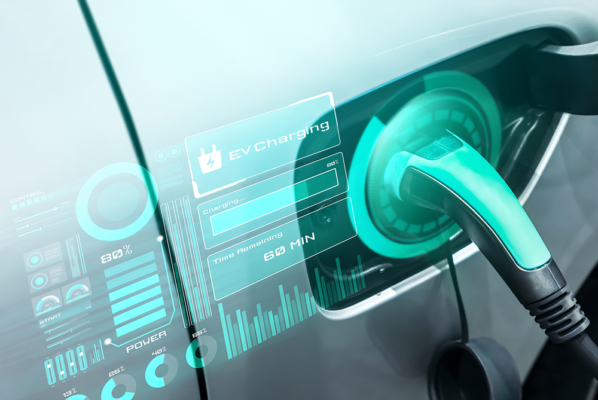Electric Vehicle Charging and the Necessity of IoT Connectivity
By Safi Khan
October 12, 2022
By Safi Khan
October 12, 2022
The outcry against climate change is rising, particularly regarding fossil fuel vehicles. In response, more governments are enacting legislation to encourage the proliferation of electric vehicles (EVs).
California, for example, pledged to stop selling gas-powered cars by 2035. Likewise, President Biden’s federal infrastructure bill promised $7.5 billion to support the implementation of thousands of new public charging stations.
However, the disruption of EV charging stations varies by state. There are over 5,000 charging stations in California and only 16 in Alaska. To transition society to EVs, we need a new charging station infrastructure equipped with IoT connectivity.
According to IoT News, cellular IoT connectivity is central to monitoring, management and optimal energy consumption. EV providers also require access to real-time data to understand consumer behavior and better address their needs.
IoT technology allows third-party companies to determine demographics, including:

For IoT devices to function, there needs to be network availability and a stable, always-on internet connection. Cellular technology is preferable because of its ubiquity in places where EV charge points could be easily installed, such as:
IoT technology needs cloud access to monitor each charger’s health and provide operators and drivers with live status updates.
Downtime or poor cellular connectivity can cost EV charging brands revenue and reputation. One year of connectivity issues can cost as much as $10 million in revenue. Global cellular network ecosystems are fragmented, and therefore they present a significant challenge to reliable, resilient IoT connectivity for charging stations.
IoT-connected EV stations must do more than facilitate a smooth energy exchange between vehicles and the power grid. In light of recently exposed vulnerabilities in Tesla’s Model 3 and Model Y, they must also consider security.
As the number of EVs and charging stations increases, the attack surface grows, making systems more susceptible to cyberattacks. Should a hacker disable all EV chargers connected to the same network, it would be the equivalent of a gas shortage.
EV charging stations need a network adapter enabled by cellular IoT modules. They also need cellular connectivity enabled through one of many diverse SIM technologies. This connectivity lets the stations connect and exchange data, including payments with the charge point operator’s (CPO’s) backend system.
An IoT SIM solution must be used in IoT devices to identify and associate them with a data subscription plan to connect to cellular networks. EVs and charging stations cannot communicate or share user data without adequate device provisioning.
Global EV charging companies and operators must adopt one or more SIM solutions in their EV stations. These solutions will enable them to provide end users worldwide with customer service.
For example, in Europe, people need to be able to use the same EV charging account in multiple countries. In Europe, for example, where people travel from one country to the next, drivers need the flexibility to have the same EV charging account that can work in multiple countries. Meanwhile, the charging station must be able to integrate the same network from anywhere, regardless of the cellular operator.
In global use cases, enterprises need a cloud-connected dashboard to manage IoT connectivity as the charger network scales up. They also require enhanced visibility to enable remote provisioning for their charging stations, including the installed SIM solution and the module. The SIM and module need extensive configuration to operate optimally.
Our IoT connectivity services provide scalable global connectivity and visibility over each SIM of every type in your deployment. Our user-friendly dashboards empower enterprises with one-touch IoT management to configure billing and provisioning. Our global team of IoT experts is available 24/7/365. We can support your local deployment in any time zone and at any stage and scale.
Speak with our IoT connectivity experts to get started on your IoT-enabled EV charging solution.